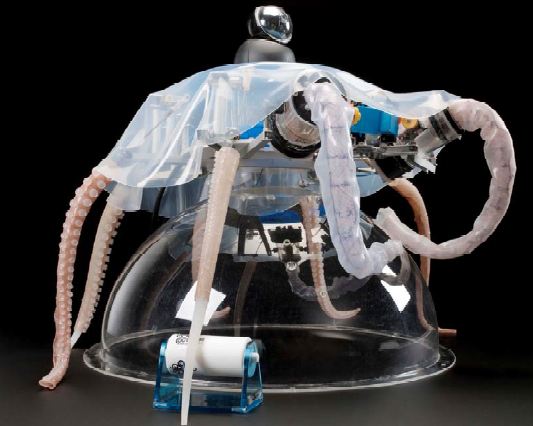An octopus as seen by a roboticist

date: 24/11/2014
Project: Novel Design Principles and Technologies...
acronym: OCTOPUS
See also: CORDIS
Contact: Contact
Thanks to the joint effort of an interdisciplinary consortium of European partners from Italy, Israel, Switzerland, Greece, and the UK, the OCTOPUS project took a biomimetic approach to study the animal model, addressing the key scientific concept of "soft dextereity" from the engineering/roboticts viewpoint and developing the neccessary tools for measuring and modelling.
This challenge was not driven by scientific curiosity alone, but also by the dream of deriving technological solutions for soft robotics. The project explored the technologies for steeling the main secret of the octopus arm, the muscular hydrostat, develping soft robot bodyware, soft actuators, soft tactile and proprioceptive systems, a stretchable skin, and suckers. Modelling and controlling such a soft robot came out as a new set of fundamental problems, providing the opportunity for exploring and developing novel techniques.
The OCTOPUS robot is now a soft-bodied 8-armed robot that can crawl in water and take objects with a stiff grasp. It is now a little more than an exhibition of the feasibility of soft robots and related technologies, but it is already making its way towards helpful applications: a soft endoscope for biomedical applications, and a ‘grown-up’ octopus robot helping humans in underwater explorations and operations.
